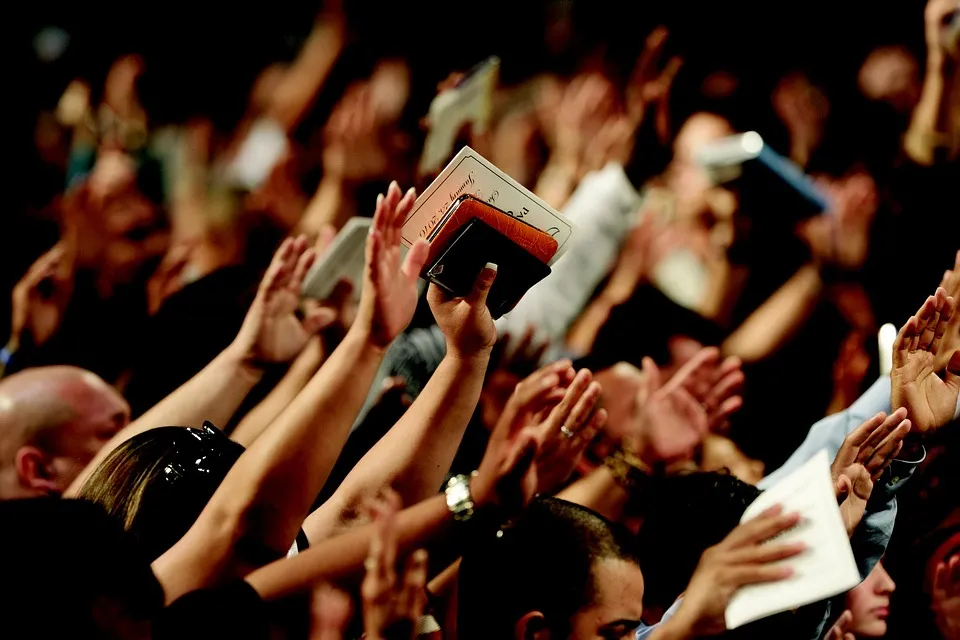When we dive into the breadth and depth of the Bible, one theme that consistently emerges is justice. The Good Book’s authors didn’t just have a few passing thoughts about this principle – they painted a picture of justice as something deeply woven into God’s character. It’s an integral part of how He interacts with humanity and what He expects from His people in return.
The Bible has plenty to say about standing up for those who are oppressed or marginalized. It constantly echoes the call to be advocates for those who can’t advocate for themselves, to aid the widows and orphans, and to speak out against injustice wherever it rears its ugly head. From Old Testament prophets’ fiery declarations to Jesus’ tender interactions with society’s outcasts, justice is central.

However, it isn’t just about fighting against injustices; it’s also about promoting fairness in our interactions with each other. In simpler terms, living justly means treating others as we’d like to be treated – love your neighbor as yourself after all! This golden rule isn’t merely a nice sentiment but forms the backbone of biblical justice: equity, kindness, and compassion towards all.
Understanding Biblical Justice
Unraveling the threads of biblical justice, it’s pretty apparent that the good book has a lot to say about standing up for the oppressed. Peeling back the pages of scripture, one can’t help but notice numerous verses that champion this cause.

Take for example Proverbs 31:9 which exhorts, “Speak up and judge fairly; defend the rights of the poor and needy.” It’s clear from this verse alone that justice isn’t an abstract concept in biblical terms. Rather, it calls for active involvement in defending those who can’t defend themselves.
In addition to this, consider Leviticus 19:15 – “Do not pervert justice; do not show partiality to the poor or favoritism to the great but judge your neighbor fairly.” Here we see a balanced approach where neither poverty nor wealth should influence how justice is meted out.
The Bible also addresses societal structures and their role in ensuring justice for all. In Deuteronomy 16:18-20, there’s a clear mandate given: “Appoint judges and officials for each of your tribes… They must govern the people with due justice… Follow what is altogether just that you may live.” These verses indicate God’s intention for human societies to establish systems that ensure fair treatment.
So what does all this mean? Well, simply put:
- The Bible strongly advocates for social equality.
- It urges individuals to stand up against oppressive practices.
- And importantly, it emphasizes maintaining unbiased perspectives regardless of socio-economic status.
In essence, biblical justice is deeply rooted in love and compassion towards our fellow humans. Whether rich or poor, mighty or meek – everyone deserves fair treatment according to biblical principles.
Bible Verses on Justice for the Oppressed
When it comes to justice for the oppressed, the Bible is chock-full of verses that address this very topic. It’s clear from these passages that God has a heart for those who are marginalized and mistreated.
Delving into Psalms, you’ll notice a recurring theme. Psalm 82:3 urges believers to “Defend the weak and the fatherless; uphold the cause of the poor and the oppressed.” It’s evident here that God places a high value on standing up for those who can’t defend themselves.
But let’s not stop there, as Proverbs too echoes this sentiment. In Proverbs 31:9 it says, “Speak up and judge fairly; defend the rights of the poor and needy.” Here again, we see an emphasis on treating all people with fairness and respect, regardless of their social status or financial circumstances.
Isaiah also speaks powerfully about justice. Consider Isaiah 1:17 which instructs us to “Learn to do good; seek justice, correct oppression; bring justice to the fatherless, plead the widow’s cause.” This verse isn’t just about acknowledging injustice—it’s urging us towards active involvement in setting things right.
And then there’s Luke in New Testament adding his voice too! Luke 4:18-19 records Jesus’ mandate – “The Spirit of Lord is upon me because He has anointed me to proclaim good news to poor…to set at liberty those who are oppressed.

These verses aren’t just ancient words—they’re powerful reminders today. They challenge us toward action and empathy with regard to societal issues like poverty and oppression. For Christians seeking guidance on how they should respond to situations of injustice around them—these scriptures provide an unambiguous answer.
The Role of Faith in Upholding Justice
Faith, it seems, has a significant role to play when it comes to upholding justice. Especially for those who are oppressed. When folks turn to their Bibles, they’ll find countless instances where faith serves as the foundation for seeking and establishing fairness.
Take Proverbs 31:9 for instance. It’s here that scripture offers clear instruction on the matter. Saying, “Open your mouth, judge righteously, defend the rights of the poor and needy.” This verse encourages believers to use their voices and actions in pursuit of justice. It’s not a choice but an obligation made clear through faith.
Then there’s Micah 6:8. A powerful reminder of what God requires from His followers. “He has told you, O man, what is good; and what does the Lord require of you but to do justice, love kindness, and walk humbly with your God?” Here again we see how faith guides believers towards fairness and compassion.
Indeed examples abound! Consider Matthew 25:40 as another case in point where Jesus Himself establishes a direct link between acts of kindness towards those oppressed or marginalized with serving Him directly – “Truly I tell you whatever you did for one of the least of these brothers and sisters of mine, you did for me.”
It’s evident that faith isn’t just about personal salvation or spiritual growth alone. Rather it also emphasizes community upliftment – particularly lending strength to those who’ve been pushed down by society’s inequalities.
In short:
- Faith instructs us on our obligations towards justice (Proverbs 31:9)
- It clarifies how living justly is actually partaking in divine requirements (Micah 6:8)
- And it draws our attention back onto humanity’s interconnectedness – showing us that service rendered unto others is essentially service rendered unto God (Matthew 25:40)
So, as believers thumb through pages of scripture, they’ll find that faith is not just a personal journey but one that deeply interweaves justice for the oppressed into its fabric. And it’s through this lens that we can understand and appreciate the role of faith in upholding justice.
Jesus Christ’s Teachings on Supporting the Oppressed
Diving right into the heart of Jesus’ teachings, we find that his messages were often centered around compassion, empathy and justice. One clear instance of this is in Luke 4:18-19 where He declares, “The Spirit of the Lord is upon me, because he has anointed me to proclaim good news to the poor. He has sent me to proclaim liberty to the captives and recovering of sight to the blind, to set at liberty those who are oppressed.”
Jesus didn’t just talk about it; he lived it. Time and again throughout His ministry, He stood up for those society had marginalized. From dining with tax collectors – considered among the most despised people in Jewish society – (Matthew 9:10), defending an adulterous woman (John 8:1-11), healing lepers (Luke 17:11-14) and even raising a widow’s son from death (Luke 7:11-15). These actions underscore His commitment to uplift those reeling under oppression.

Fast forward thousands of years later, these teachings continue to inspire millions across generations. When any form of oppression arises within society – be it racial injustice, economic inequality or religious persecution – Christ’s words serve as a guiding light towards advocating for justice.
So what does all this mean for us today? It means that supporting the oppressed isn’t just something ‘nice’ or ‘charitable’, but rather it’s at the core of Christian duty! We’re reminded in Proverbs 31:8-9 “Speak up for those who cannot speak for themselves… defend the rights of all who are helpless.” As followers of Jesus Christ, standing alongside our marginalized brothers and sisters should be part and parcel of our faith journey.
In conclusion, we can see that when it comes down to supporting the oppressed, there’s no room for ambiguity in Jesus’ teachings. He not only encouraged us to uphold justice but also showed us how it’s done through His own life. The call to action is clear – let’s strive every day to emulate His example and be a beacon of hope for those crushed under the weight of oppression.
Conclusion: Embracing God’s Call for Justice
Drawing to a close, it’s evident that the Bible fervently speaks about justice for the oppressed. It paints a clear picture of God as a defender of the weak and marginalized, urging His followers to do the same.
God doesn’t just suggest that we stand up against injustice – He commands it. Scriptures like Proverbs 31:9 “Speak up and judge fairly; defend the rights of the poor and needy” drive this point home.

Loving thy neighbor isn’t restricted to those who are easy to love. It extends even to those society often overlooks or devalues – from widows and orphans to immigrants and prisoners. This is beautifully depicted in verses such as James 1:27 “Religion that God our Father accepts as pure and faultless is this: to look after orphans and widows in their distress…”
In understanding what the Bible says about justice for the oppressed:
- We see a compassionate God who cares deeply about social justice.
- We’re reminded that true religion involves caring for those on society’s fringes.
- We find strength in knowing that by seeking justice, we align ourselves with God’s heart.
It’s essential, then, not only to acknowledge these biblical truths but also take active steps towards actualizing them in our daily lives. Whether through advocacy, volunteer work, or simply treating everyone with kindness and respect – each one has an important role in promoting justice for all.
Remembering Micah 6:8 can serve as guidance: “He has shown you, O mortal, what is good. And what does the Lord require of you? To act justly and to love mercy and to walk humbly with your God.”
By embracing God’s call for justice not only are they adhering faithfully to scripture but they’re also working towards creating more equitable societies reflective of His kingdom here on earth. The Bible makes it abundantly clear – justice for the oppressed isn’t simply an option, but a divine mandate.












